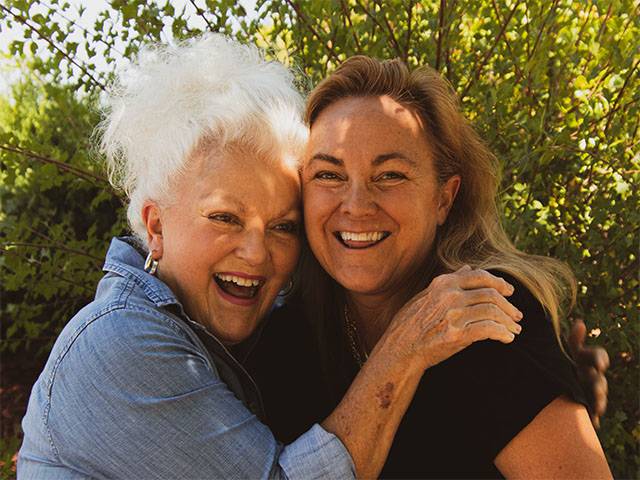New treatment for rheumatoid arthritis

New treatment for rheumatoid arthritis, RINVOQ (upadacitinib), became available on the PBS during COVID-19 lockdown
• Due to COVID-19 lockdown many Australian rheumatoid arthritis (RA) patients may not have had the opportunity to learn about a new oral medication called RINVOQ
• Australians with severe active RA are now eligible to receive new oral medication RINVOQ, a once-daily Janus Kinase (JAK-1) selective inhibitor
• Local survey* reveals difficulties of those living with RA, with almost half of Australians surveyed having to reduce the number of hours they can work or study, or cease altogether*
• The majority (87%) of Australians aged 18-59 surveyed living with RA expressed that their life goals and personal aspirations were limited because of the symptoms of RA*
AbbVie (NYSE: ABBV), a research-based global biopharmaceutical company, has announced that RINVOQ® (upadacitinib), a once-daily JAK-1 selective inhibitor, for the treatment of adult patients with moderate to severe active rheumatoid arthritis who have responded inadequately to, or who are intolerant to, one or more diseasemodifying anti-rheumatic drugs (DMARDs) was recently made available on the Pharmaceutical Benefits Scheme for patients with severe active disease.
With over 450,000 Australians living with RA, a condition that can affect anyone at any age, and may cause significant pain and disability, it's important that patients are aware that new treatments are available.
Rheumatologist Associate Professor Andrew Östör said that many patients may not have had the opportunity to learn about this new treatment option during the lockdown period.
"The availability of this new option on the PBS provides an important addition to the treatment landscape and may assist with managing disease progression for people living with RA."
"The most important goal of treating rheumatoid arthritis is to reduce joint pain and swelling and to maintain and/or improve joint function. The long-term goal of treatment is to slow or stop the disease process, particularly joint damage ," said Associate Professor Östör.
As many Australians return to work outside of home or commence job-seeking, recent research* showed how much RA can impact on the careers/studies of Australians suffering from RA– with almost half (45%) of people aged 18-59 years saying that rheumatoid arthritis has severely impacted upon their ability to work or study even before the pandemic hit:
• Almost a third (29%) have had to reduce the number of hours they work or move to parttime or casual work/study due to RA,3 while 18% have had to cease work altogether.
• 58% say that they often keep their true feelings about living with RA from their employer. While others say they also keep their true feelings from their family (30%) and friends (40%).
• 41% said they feel greatly or somewhat limited in achieving their goals due to RA.
Rheumatoid arthritis (RA) typically begins in the smaller joints of the hands, wrists and feet, causing pain, stiffness, swelling and loss of function in the joints. If not appropriately managed, ongoing inflammation can lead to irreversible joint damage and loss of function. Beyond physical symptoms, rheumatoid arthritis also significantly impacts health-related quality of life, including emotional wellbeing and ability to perform daily activities. It also represents a substantial economic burden to patients and society.
Rob Anderson, CEO of patient organisation Musculoskeletal Australia (MSK), says that there is still a strong perception among the public that RA is a condition that only affects much older people, when in fact it can occur at any age and many Australians are juggling career and family responsibilities while trying to manage the pain of the condition.
"Under normal circumstances RA can significantly impact people's ability to work. With the advent of COVID-19 and lockdown restrictions, many people's regular management routines have been disrupted. For many people with RA these disruptions can create additional challenges when it comes to maintaining work or finding new employment.
"Avoiding appointments with healthcare professionals during this period could lead to a progression of their symptoms. Furthermore, we have also observed that many people calling our MSK Help Line are anxious about their risk of contracting COVID-19 as well as how the restrictions affect their access to care," he said.
"It's important that all Australians are aware that young people can be experiencing significant impacts of RA at this time. I call on anyone who is suffering in silence to reach out to their rheumatologist and talk about their management options, as new solutions are constantly becoming available."
Early detection and diagnosis are critical in being able to treat symptoms, manage pain, and prevent irreversible joint damage. Scientific advances have improved therapies, moving from symptomatic relief through to slowing or preventing further joint damage. Despite the availability of current treatments, many of these patients do not achieve their treatment goals and therefore additional therapeutic options are needed.
AbbVie Medical Director Alan Watts, said that advances in treatment options are vital to ensure that everyone living with the condition has access to treatment that may work for them.
"With over 20 years' experience in discovering and delivering therapies for people living with RA, we are dedicated to improving care for people living with this condition. Although the considerable advances in RA treatment in the past 20 years has seen a dramatic improvement in the lives of many, there are still patients in our community who need alternative options. We are proud to be able to provide patients and specialists a new alternative."
Image Unsplash
MORE



